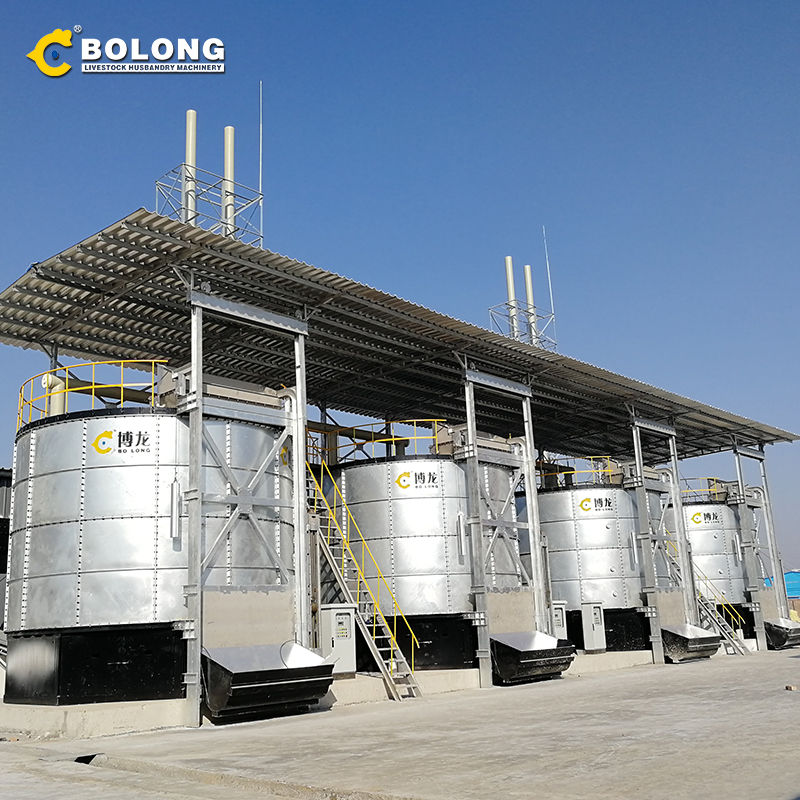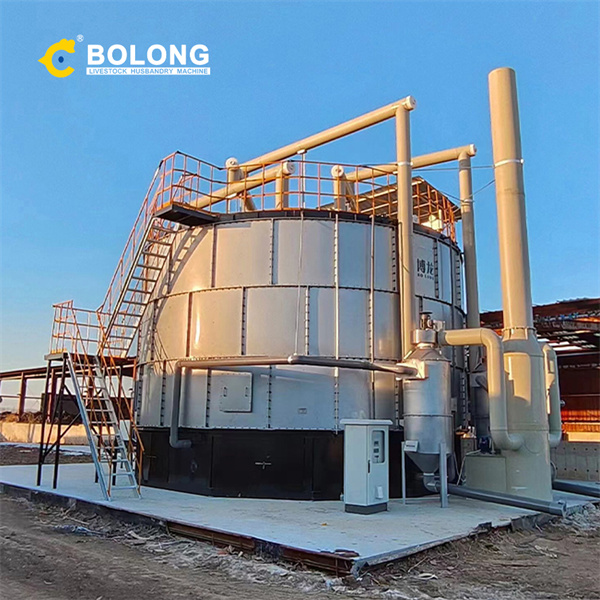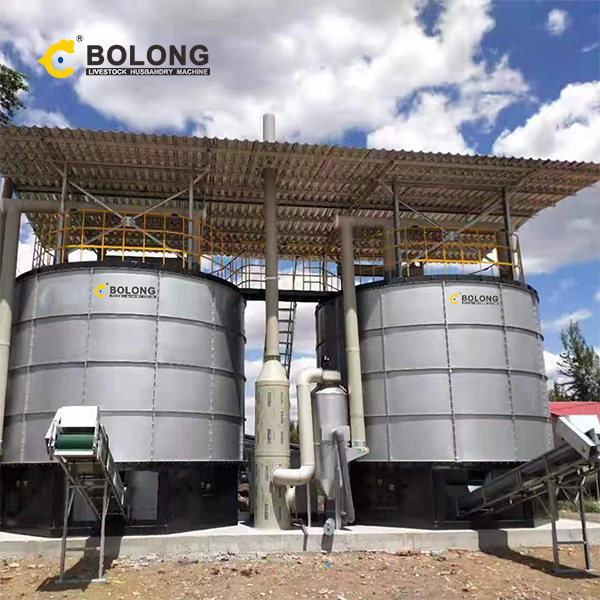As global environmental problems become increasingly serious, sustainable agricultural development has become one of the urgent tasks facing all countries. Traditional agricultural methods that rely too much on chemicals such as fertilizers and pesticides have caused serious pressure on the environment and ecosystem. In order to meet these challenges, promoting ecological agriculture and organic agriculture has become a global development trend. In this process, organic fertilizer composting machines, as an efficient agricultural waste treatment technology, are gradually becoming an important tool for achieving sustainable agricultural development. This article will explore the important role of organic fertilizer composting machines in the field of sustainable development, especially in waste resource utilization, soil health improvement, reduction of environmental pollution and promotion of green agriculture.
Agricultural waste, such as straw, livestock and poultry manure, crop residues, etc., are usually inevitable by-products of farm production. If not handled properly, these wastes may pollute the environment and even aggravate soil degradation and water pollution. However, these wastes themselves are rich in organic matter and nutrients, and can be completely converted into organic fertilizers that are beneficial to the soil.
Organic fertilizer composting machines are the key equipment for realizing the resource utilization of agricultural waste. Through fermentation technology, the organic matter in agricultural waste is converted into organic fertilizers rich in organic matter and nutrients through the action of microorganisms. This process not only effectively reduces the negative impact of waste on the environment, but also provides a natural source of nutrition for the soil. The efficient use of composting machines enables the complete transformation of agricultural waste, realizes the recycling of resources, and promotes the development of the circular economy.
In addition, through the treatment of organic fertilizer composting machines, air pollution and greenhouse gas emissions caused by traditional waste treatment methods such as burning straw can be reduced. Through this process, agricultural waste is treated in a more environmentally friendly and efficient manner, providing a feasible solution for achieving a win-win situation for agriculture and the ecological environment.

Soil is the basis of agricultural production, but the traditional agricultural production model that has long relied on chemical fertilizers and pesticides has led to a decrease in the organic matter content of the soil and a decrease in microbial diversity, thereby affecting soil fertility and crop growth. Excessive use of chemical fertilizers not only reduces the sustainability of the soil, but may also lead to problems such as soil acidification and salinization.
Organic fertilizer composting machines provide a solution. By converting agricultural waste into organic fertilizer, it can not only increase the organic matter content of the soil, but also improve the physical and chemical properties of the soil. The humus produced during the fermentation process can improve the structure of the soil, make the soil soft, increase the air permeability and water retention of the soil, thereby improving the root development and drought resistance of crops. In addition, the trace elements and beneficial microorganisms in organic fertilizers can enhance the biological activity of the soil, improve the fertility and health level of the soil.
The use of organic fertilizers can reduce the dependence on chemical fertilizers, improve the sustainability of the soil, and thus achieve long-term stability and ecological balance in agricultural production. By treating waste with organic fertilizer composting machines, agricultural production can not only increase production, but also reduce environmental pollution and achieve the goal of green agriculture.
Improper treatment of fertilizers, pesticides and agricultural waste in agricultural production often leads to soil pollution, water pollution and air pollution. Excessive use of chemical fertilizers leads to nutrient loss, which eventually flows into rivers and lakes, causing eutrophication of water bodies and endangering water safety. The burning of agricultural waste not only pollutes the air, but also aggravates greenhouse gas emissions and promotes climate change.
The application of organic fertilizer composting machines can effectively reduce these environmental pollution problems. By converting agricultural waste into organic fertilizer, the incineration or stacking of waste is avoided, and air pollution and greenhouse gas emissions are reduced. At the same time, the beneficial microorganisms in the fermentation process can degrade harmful substances in the waste and convert them into beneficial nutrients, avoiding the pollution of water and soil by waste.
The use of organic fertilizer can reduce the risk of pollution of water and soil by traditional fertilizers. Since organic fertilizer releases nutrients slowly, it can effectively avoid nutrient loss and reduce pollution of groundwater and rivers, thereby protecting water source safety and ecological environment.

In agricultural production, soil health is closely related to crop yield and quality. With the increasing demand of consumers for healthy food, green and pollution-free organic agricultural products have gradually become the mainstream of the market. By using organic fertilizer composting machines to treat agricultural waste, it can not only improve soil fertility, but also improve crop resistance to pests and diseases and growth quality.
Organic fertilizer promotes the growth of crop roots and improves the efficiency of crop use of water and nutrients by improving the physical and biological environment of the soil. At the same time, trace elements, humus and beneficial microorganisms in organic fertilizers can enhance the stress resistance of crops and improve the yield and quality of crops. Compared with chemical fertilizers, organic fertilizers pay more attention to the long-term health of the soil, help improve the nutritional value of crops, and meet consumers’ demand for green food.
The use of organic fertilizer composting machines has promoted the development of green agriculture, made agricultural production more environmentally friendly and healthy, and helped to enhance the market competitiveness of agricultural products.
With the increasingly severe global climate change problem, low-carbon agriculture has become the future trend of agricultural development. In traditional agriculture, the use of chemical fertilizers and pesticides not only increases agricultural carbon emissions, but also aggravates the accumulation of greenhouse gases. By promoting the application of organic fertilizer composting machines, carbon emissions in agricultural production can be effectively reduced and the development of low-carbon agricultural models can be promoted.
The production and use of organic fertilizers not only reduces the use of chemical fertilizers, but also reduces carbon emissions in the process of agricultural waste treatment. By resource-based utilization of agricultural waste, organic fertilizer composting machines help agriculture achieve carbon reduction goals and can effectively promote sustainable agricultural development.

As an efficient agricultural waste treatment equipment, organic fertilizer composting machines have played an important role in promoting sustainable development. By converting agricultural waste into organic fertilizer, it not only promotes the resource utilization of waste, but also improves soil health, reduces environmental pollution, and increases crop yield and quality. With the continuous advancement of organic fertilizer technology and the promotion of its application, organic fertilizer composting machines will play an increasingly important role in promoting the development of green agriculture and low-carbon agriculture.